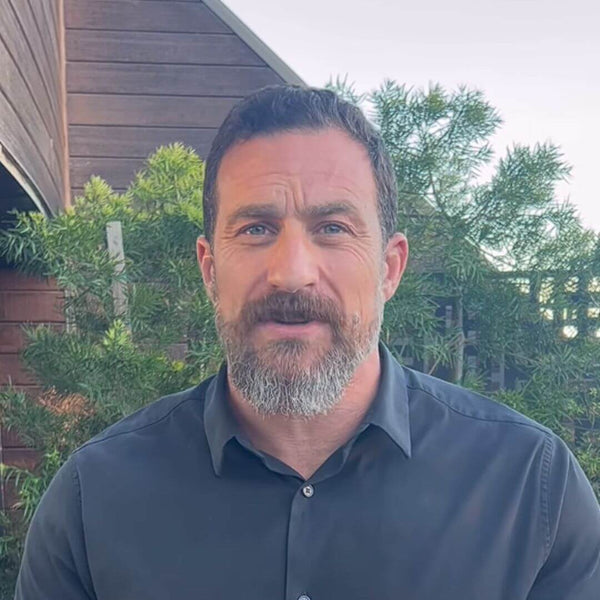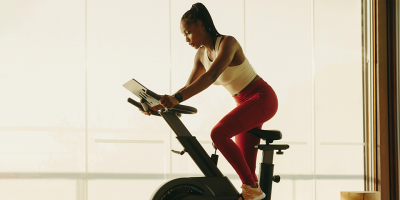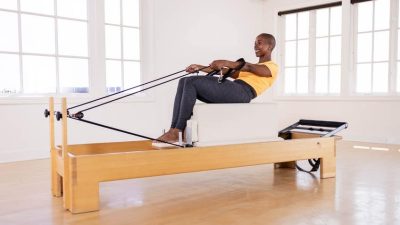
Over the past few years, Stanford University professor Andrew Huberman has established himself as the online authority on maximizing human performance. His insights on optimizing your daily routine, brain power (with human cognitive functioning explained for the layman), and workouts have been literally life-changing for listeners to his Huberman Lab podcasts and YouTube videos.
Dr. Huberman is a neuroscientist who has made significant contributions to brain development and neuroplasticity. He is a tenured professor at the Stanford School of Medicine’s Department of Neurobiology. Andrew’s online popularity is due to a combination of his cutting-edge insights and the fact that he walks the walk, clearly practicing what he preaches in terms of working out and implementing his daily life hacks.
Dr. Huberman puts a lot of emphasis on what you do in the first few hours of the day. In fact, his morning routine has gone viral, with people the world over claiming that it has been transformative for them. As a personal trainer, I’ve had a number of clients asking if they should adopt it. So, I decided to find out for myself.
I tried Andrew Huberman’s morning routine for a month to find out whether all the hype was justified. Is this worth changing your morning habits over or just another load of substance-free internet bloviating? Read on to get the facts.
Table of Contents:
- Overview of Huberman’s Morning Routine
- The Rest of The Day
- Preparation
- Week By Week Breakdown
- Results Summary
- Challenges Summary
- Expert Insights With Scientific Backing
- Others Experiences
- Conclusion
Overview of Andrew Huberman’s Morning Routine
Dr Huberman’s morning routine is part of his daily plan, which has three phases:
- Morning: 6 am-10 am
- Linear: 10 am-2 pm
- Non-linear: 2 pm-10 pm
The morning routine consists of the following elements:
- Immediately getting natural light exposure.
- Drinking water infused with salt.
- A cold shower or cold plunge.
- Delay caffeine intake for two hours after waking.
- Workout.
Let’s break down the rationale for each of these elements:
1. Natural Light
When we wake up in the morning, our body temperature starts to increase. This leads to an increase in the release of cortisol, boosting your immune system, mental focus, and metabolism. So, enhancing cortisol early in the day is actually a good thing.
According to Huberman, getting early exposure to natural light can also improve sleep quality and reinforce the body’s sleep-wake cycle.
The perfect way to optimize cortisol early is to get out under natural light as quickly as you can. Dr. Huberman recommends doing this within 30-60 minutes of waking.
In an August 2022 podcast, he advised, “Whether or not you live in a cloudy place or a sunny place, whether or not there’s cloud cover that day, you should really strive to get bright light in your eyes, ideally from sunlight, within 30-60 minutes after waking. The reason for that is very simple: you want to trigger that cortisol increase to occur very early in your day, and you don’t want that cortisol peak to occur later, which is what will happen if you wait to get outside and see sunlight.”¹
If it’s the middle of winter where you are or it’s a cloudy day, Dr. Huberman recommends that you simulate natural light exposure with UV light.
2. Water with Salt
Dr. Huberman recommends adding salt to your water first thing in the morning. This will help replace any sodium lost through normal bodily processes. People who drink a lot of caffeine are also likely to be low in sodium. Adding a teaspoon of sea salt (or regular table salt) to your first glass of water in the morning will fix the low sodium problem. It may also help alleviate gut health problems.

3. Cold Shower or Plunge
Dr. Huberman is a huge advocate of cold exposure for health benefits and peak performance. He recommends taking an early morning cold shower after exercise. If you have access to one, a cold plunge is even better (like the ones found here).
Cold exposure has been found to increase blood flow and metabolism and boost the release of dopamine, the molecule that promotes motivation, pleasure, and satisfaction, by as much as 250 percent. Dr Huberman also explains that cold exposure helps build resilience; “People use cold exposure specifically to shift their body state as a way to train their mental state so that they can better cope with stress in real life…”²
4. Delay Caffeine
Andrew Huberman advocates delaying your caffeine intake by a couple of hours after waking. We know that caffeine suppresses adenosine, which makes us feel alert. In a 2022 podcast, Dr. Huberman explained that ‘if you ingest caffeine immediately on waking, the signal to the adrenals to release cortisol, and the suppression of adenosine that happens when we come out of sleep … if you ingest caffeine too early there’s a mechanism by which the adenosine compete for the receptors so that you have a mid-morning crash.”³
By delaying caffeine intake for a couple of hours, you are able to optimize the neural circuit that exists between the circadian clock and the cortisol released by the adrenals. You’ll also avoid that dreaded energy crash later in the day.
5. Workout
Dr. Huberman has found that exercising early in the morning is ideal for matching rising body temperature to mental alertness. It also triggers the release of such hormones as epinephrine along with neuromodulators that promote heightened levels of arousal and mental acuity. All of this primes you for productivity so that you’re geared for ‘deep work’ during the next phase of your day.
Andrew recommends doing some light exercise, such as walking when you first get out in sunlight. This may only take ten minutes or so if there’s no cloud cover. He personally then spends about an hour doing some reading or relatively easy work before he gets caffeine into his system.
The caffeine acts as a pre-workout for Dr. Huberman. His exercise routine consists of 45-60 minutes of weight training every other day on a push-pull-legs program. On his non-weight training days, he does some form of cardio. This may consist of skipping, running, or some form of high-intensity interval training.
Andrew keeps his phone out of his workout area, focusing totally on the working muscles. He also listens to loud, fast music while training.

Dr. Huberman has also spoken about the benefits of delaying your social media and email checking as long as possible. And, if you’re wondering about when he eats during his morning routine, the answer is that he doesn’t. Andrew follows an intermittent fasting protocol that sees his first meal being served at around 12 pm.
Let’s now review what Andrew Huberman’s morning routine looks like in real-time:
- Get up between 6 and 6:30 am.
- Have a glass of salty water
- Walk under direct sunlight for ten minutes
- Do 90 minutes of non-taxing work
- Drink caffeine
- Have a workout
- Cold Exposure
The Other Phases Of The Day
During the linear phase, you focus on the deep work of your day. Dr. Huberman recommends doing 90 minutes of intense work followed by a twenty-minute rest period. Repeat this to complete your ‘heavy’ analytical work tasks for the day.
The non-linear phase, from 2 pm onwards, is when you switch your attention to creative tasks. Dr. Huberman also advocates 10- 15 minutes of non-sleep rest during this phase to relax and focus the body throughout the day.

Preparation For Trying Huberman’s Routine
Implementing Andrew Huberman’s morning routine required some adjustments for me. I’ve been getting up between 7 am and 7:30 am, while Dr. Huberman’s routine works best with an earlier rising time. So, in the week leading up to my morning routine experiment, I progressively set my alarm clock earlier so that on Day One, I heard it buzz at 5:50. That would give me ten minutes to get into a state where I was ready for feet on the floor at six.
I also started delaying my first coffee. Again, I did this incrementally. A week out, I had my first coffee at 6:30, then extended it by 15 minutes per day, replacing it with water.
Finally, I began making my early morning shower colder. This was the hardest step for me. I love my warm showers, so it was a matter of simply gritting my teeth and jumping under the cold spray. I made myself stay under for 30 seconds, which was about all I could handle.
Before I share my experience with Andrew Huberman’s morning routine, let me say that not everyone has the freedom to make the routine work. If you don’t work for yourself and/or have kids to rush off to school or other commitments, you probably won’t have the luxury of waiting 90 minutes after getting up before having caffeine and exercising. So, all of us will have to make adjustments to make it work.

Week by Week Breakdown
Week One
Spending the prep time adjusting to the routine was really helpful. But still, disciplining myself to get to bed by 10:30pm so I got enough quality sleep was a challenge for me. I found that on the days that I stayed up till 11pm or later, I was feeling really groggy when the alarm went off, and it was hard to get up at six.
On those days, I also found myself hanging out for that early caffeine fix. So, holding off for 90 minutes was pretty excruciating. As I work for myself, the 90 minutes of work time was easy to implement. However, my natural inclination is to get into my workout as soon as I get up, so I found myself anticipating the workout during that enforced wait time.
During those first few days, it was difficult to tell whether I was actually seeing benefits from the changes or whether it was psychosomatic. But by Day Five, it was clear that my workout focus was greater than what it had been the week before. The cold shower effects were also kicking in, and I was feeling hyped to jump into the deep work phase of my day.
Week Two
By the start of week two, I’d managed to make a couple of adaptations so that the routine was more practical for me. The first thing I did was ditch the water with salt. I hated the taste, so I decided to buy some electrolyte sachets that combined sodium, magnesium, potassium, and phosphate. That turned something I dreaded into a pleasant morning beverage.
The other change I made was to bring my workout back to my normal time, which is to head to the gym 30 minutes after I get up. I actually started walking the 15 minutes to the gym, which also took care of the morning sunlight requirement. Instead of caffeine as a pre-workout, I purchased a non-stimulant pre-workout.
With these changes in place, I was able to notice some real benefits from Andrew Huberman’s morning routine. The natural sunlight, combined with the caffeine delay and cold showers, provided a noticeable energy boost as I moved into the deep work phase of my day. Furthermore, I wasn’t feeling the need for a mid-afternoon nap, which was something that previously happened when I had a heavy weight training session in the morning.
Week Three
By week three, I was rocking with this routine. I was experiencing noticeable improvements in my productivity and well-being. All of the discomfort of delaying caffeine and waking up earlier was behind me, and the Huberman morning routine was becoming habitual.
My energy levels were greater than before during my workout, even though I was no longer having pre-workout caffeine. I put this down to the improved sleep quality and the benefits of natural sunlight. The greater focus I experienced during my deep-focus work time was also becoming increasingly evident.
Week Four
Into the last week of this little experiment, I was sold on the Huberman morning routine. Having given the routine a full month, there is no doubt that my mental clarity had improved significantly. I was also enjoying improved sleep quality. By the start of week four, I was actually waking at 5:45 (five minutes before the alarm), feeling wide awake and raring to go. I have NEVER felt that way before!

Results Summary
I made sure to carefully document my experience with Andrew Huberman’s morning routine. Looking back on my journal notes, I can categorically state that I saw significant improvements in the following:
- Improved mental clarity and focus
- Greater productivity
- No longer feeling tired mid-afternoon
- More workout energy
Challenges Summary
It took me a week or so to make the adjustments so that the Andrew Huberman morning routine was workable for me. These changes involved:
- Ditching the water with salt in favor of a more palatable electrolyte sachet to add to my water.
- Walking the 15 minutes to the gym at 6:15 to get in my natural sunlight and light exercise.
- Doing my workout 30 minutes after rising rather than 90-120 minutes after I’ve had my caffeine fix.
- Having a non-stimulant pre-workout before my workout.
Expert Insights With Scientific Backing
Dr. Andrew Huberman is undoubtedly an authority expert on optimized human performance. However, let’s not just take his word for it. Here’s the research that supports his morning routine:
The experts agree that early morning sunlight is crucial for optimized productivity. Dr. Jacob Liberman, OD, PhD, relates that when sunlight enters the eyes, ‘the entire brain lights up.’ It sends a wake-up signal to the pituitary gland, which then stimulates the release of hormones that suppress melatonin and increase cortisol.
A 2013 study published in PLOSONE showed that early morning exposure to sunlight can increase weight loss.?
A 2022 study focused on the benefits of cold exposure for body composition. The researchers found that cold exposure reduced adipose tissue, which also lowers insulin resistance and improves insulin sensitivity.? Other studies have identified the cognitive benefits of voluntary cold exposure.?
A research paper published in the journal Psychosomatic Medicine discusses the effect that caffeine has in increasing cortisol secretion and supports Dr. Huberman’s contention that delaying consumption by 90-120 minutes when waking will increase productivity and prevent an energy slump later in the day.?

Insights from Others Who Are Doing Huberman’s Routine
Having shared some expert validation of Dr. Huberman’s morning routine, let’s find out what average Joes and Jills like you and I think of it. Here’s a round-up of actual user experiences and observations:
Reddit poster u/Abbonnema credits the Huberman morning routine as the catalyst for major life improvements:
“In order of impact on quality of life
- Quit Alcohol
- Drastically reduced mindless dopamine activities (phone is a silent soul killer)
- wake up earlier to light and exercise
- cold showers – the longer and colder the better
- Delayed Caffeine – Yerba Mate
Started in January 2023 and it’s been an absolute game changer. I am 42 and feel better than I can ever remember. I feel like I woke up out of a 20 year slump and have a zest and enjoyment in life that’s been missing for decades. Stressful events are inevitable but I am so much more able to handle them. I feel more present and alert.
5) Sleep cocktail – Magnesium, theinine, apagenin.
Works great for deep restful sleep, awesome dreams! Feel groggy and out of it the entire next day. I won’t be continuing this
So grateful for Huberman’s teachings”
Fellow Reddit commenter u/Xyals has benefited from a partial application of the routine:
“Doing just 1-3 [waking up early, water with salt, natural sunlight] has greatly helped me. Before I would scroll my phone or directly get on to the computer after waking up for 30 mins or so and then brush my teeth etc. I did notice generally higher energy and better mood after going outside as soon as possible after waking up.”
u/JustDesserts12345 has found that simply delaying caffeine intake has made a big difference:
“Drinking coffee 1-2 hours after waking up instead of immediately drinking coffee.
I definitely noticed that I sleep better at night, and the caffeine effect lasts longer with no crash.”
Meanwhile, another Reddit user, u/DaddyofChaos, makes some interesting comments about the practicality of morning routines like that espoused by Huberman for everyday folks:
“I mean this is all standard stuff, but it’s also a pain in the ass to have to go through ten things every morning just for a morning routine.
I watched a youtube video recently, I think it was Mark Manson or simular, but pointed out that a lot of ultra successful people aren’t ones that have crazy morning routines or also what some productivity youtuber is saying and I like that.
It’s great to optimise this stuff, I suppose, but also a little bit crazy, I would say maybe it’s good to pick and choose a few things from here, but then really the most important thing is just to work on your most important thing and do as much of that as possible.”
Conclusion
Dr. Andrew Huberman’s morning routine includes some research-supported gems that will significantly increase your productivity, boost your energy, improve your sleep quality, and help prevent the mid-afternoon energy slump. Most people, though, will have to adjust the routine so that it’s workable for them.
For me, the two key adjustments were to find a substitute for the off-putting taste of salt and water and bring my workout time back to just 30 minutes after getting up. That required me to switch from a stimulant-based to a non-stim pre-workout in order to stick with the delayed caffeine consumption that this routine requires.
The increased productivity and energy you’ll get from adopting Andrew Huberman’s morning routine are well worth the effort. I wholeheartedly recommend that you follow my lead and give it a four-week trial, adapting to make it workable for you.
Keep a journal and record how your body and mind react to the routine. If it makes you a more productive, happier, and energetic person, stick with it. If not, at least you’ll know it’s not for you!
References
- “Using Light (Sunlight, Blue Light & Red Light) to Optimize Health – Huberman Lab.” Www.hubermanlab.com, www.hubermanlab.com/episode/using-light-sunlight-blue-light-and-red-light-to-optimize-health.
- “Using Deliberate Cold Exposure for Health and Performance – Huberman Lab.” Www.hubermanlab.com, www.hubermanlab.com/episode/using-deliberate-cold-exposure-for-health-and-performance.
- “Using Caffeine to Optimize Mental & Physical Performance – Huberman Lab.” Www.hubermanlab.com, www.hubermanlab.com/episode/using-caffeine-to-optimize-mental-and-physical-performance.
- Reid, Kathryn J., et al. “Timing and Intensity of Light Correlate with Body Weight in Adults.” PLoS ONE, vol. 9, no. 4, 2 Apr. 2014, p. e92251, https://doi.org/10.1371/journal.pone.0092251. Accessed 28 Apr. 2020.
- Espeland, Didrik, et al. “Health Effects of Voluntary Exposure to Cold Water – a Continuing Subject of Debate.” International Journal of Circumpolar Health, vol. 81, no. 1, 22 Sept. 2022, https://doi.org/10.1080/22423982.2022.2111789.
- Publishing, Harvard Health. “Out in the Cold.” Harvard Health, 1 Jan. 2010, www.health.harvard.edu/staying-healthy/out-in-the-cold.
- Lovallo, William R, et al. “Caffeine Stimulation of Cortisol Secretion across the Waking Hours in Relation to Caffeine Intake Levels.” Psychosomatic Medicine, vol. 67, no. 5, 2005, pp. 734–9, www.ncbi.nlm.nih.gov/pubmed/16204431, https://doi.org/10.1097/01.psy.0000181270.20036.06.






